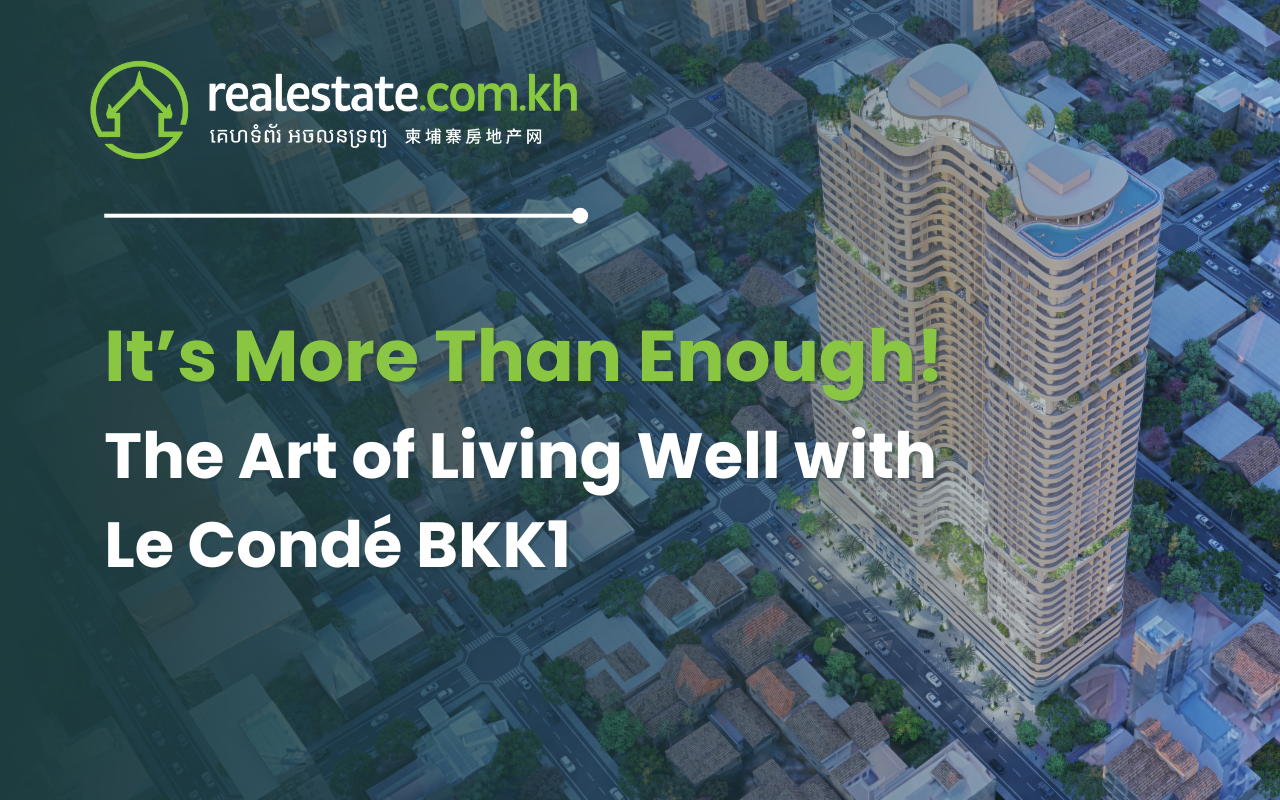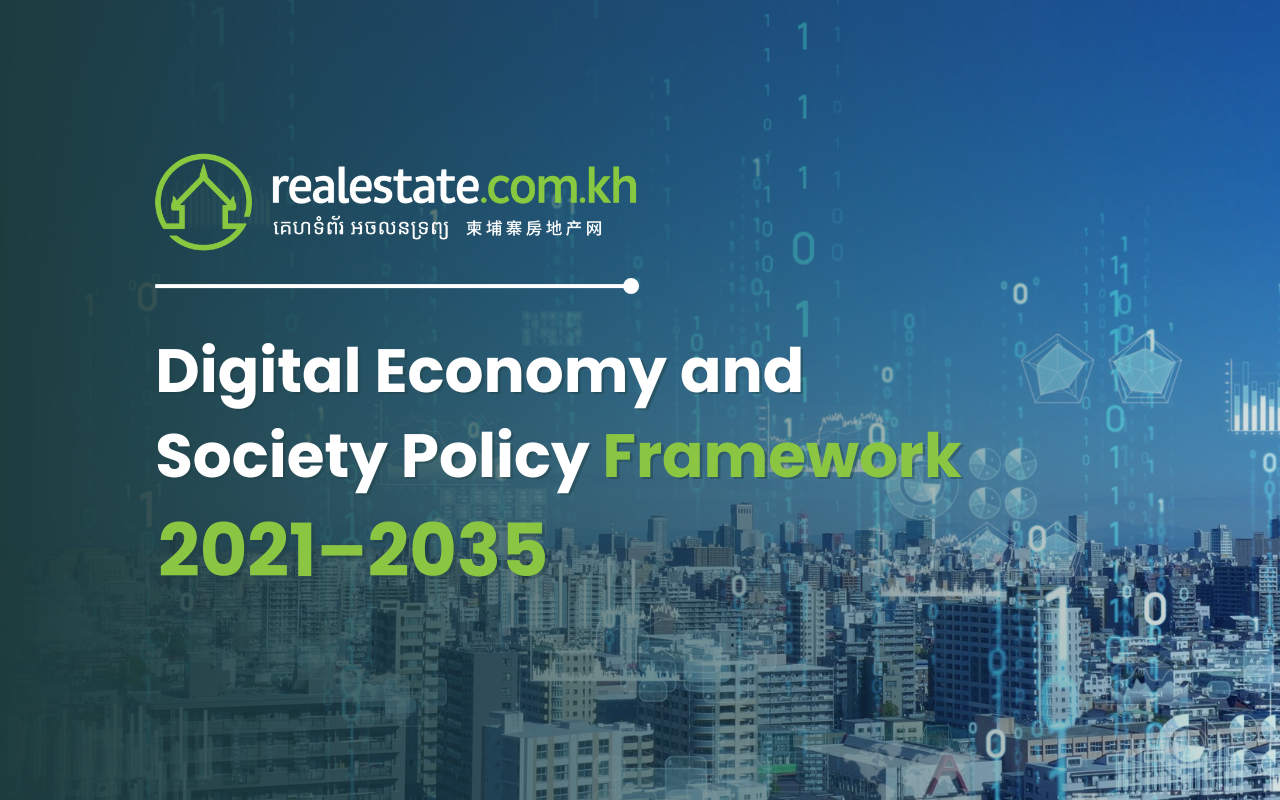 Over the last few years, the Cambodian real estate market, and in particular Phnom Penh, has seen huge growth. In 2015 alone, overall property prices in Phnom Penh rose to an amazing 26.2 per cent. This is according to a report released by global property consultancy, Knight Frank. It’s an impressive feat, considering that it is higher growth than any other city in the Asia Pacific region. Phnom Penh came in just a little bit behind the success of Tokyo in terms of rise in land values within a greater region. But properties like condominiums, despite sales, remain one of the most misunderstood property types in the Kingdom. This is echoed by a statement made by Chrek Soknim at the first annual Real Estate Market & Outlook Conference 2016 (REMOC2016). Soknim explains that the “condominium isn’t a nascent market anymore in Phnom Penh. It’s been here now for over eight years, yet there are still many things for developers, buyers and key players to carefully learn in order to get quality market insights, and shift their focus to the right paths forward for this real estate subsector.” One such factor that developers should consider is the cultural and generational gap of Cambodian society, especially if you are entering its real estate market from an outside perspective. Cambodians prefer to live with their extended families in residential landed homes. This makes condominiums more of a tough sell in the Cambodian context, Soknim laments. This is a sentiment that In Sitha, Business Development Director at VTrust Appraisal, also shared, stating that, “developers must conduct thorough market surveys before beginning any project in Cambodia if they want to guarantee that there will in fact be sufficient demand for their end real estate product.” What works in the property developer’s home market, will not automatically work in the Cambodian context, it seems. Though Soknim, in his presentation at the REMOC2016, is optimistic as he explains that the younger generation of Cambodians are now more open and understanding of why condos make for better investments than residential homes: "So far, our own people, they don't want to live in condos." He continues to say, "but the young generation, mostly the people who go to foreign countries, they are aware and understand about the benefit of condos." The second factor developers can monitor is the Kingdom’s general economy where banks take collateral that charges 100 per cent of the property value. Home loans for relatively expensive condo units, therefore, fall outside the reach of many Khmer buyers. The same applies to high starting deposit rates of 30 percent and upwards. This is leading to an increasing trend of developers working in close partnership with local and international banks to provide realistic payment plans and loan criteria, more and more tailored to the local market requirements. A third factor to consider is the ratio between local and international interest in these types of properties, especially with luxury condominiums. Soknim explains that what developers should come to terms with is the fact that 80 per cent of the condominium developments are usually purchased by foreign investors and only around 20 per cent are purchased by the locals. This is why buildings can have a thousand units yet at the same time seem empty. It is important to note that based on legislation passed several years ago, the strata title law of 2010, foreigners can own up to 70% of the property as long as that ownership does not extend to the ground floor. This is good news for foreign investors and local businesses who can utilize this to their advantage by buying property in Cambodia, and moving businesses into the US$ based economy. As Fitzgerald explains, “given the political instability [in thailand for example], the worry of the [Thai] currency; is meaning a lot of the medium to lower funds and foreign investment funds are actually moving their headquarters from Bangkok to Phnom Penh.” It is also important to note though that there are sometimes instances where units are not purchased with intent of occupancy by pure investors. These are purchases made for appreciation benefits or as means to safeguard finances. While the Kingdom of Cambodia still has a lot of policies to polish and lessons to learn, these indicators, along with the rising wealth of statistics and data brought about by Phnom Penh’s globalization efforts, can serve as an analytical tools for potential investors and developers who wish to delve into the real estate and condominium industry.
Over the last few years, the Cambodian real estate market, and in particular Phnom Penh, has seen huge growth. In 2015 alone, overall property prices in Phnom Penh rose to an amazing 26.2 per cent. This is according to a report released by global property consultancy, Knight Frank. It’s an impressive feat, considering that it is higher growth than any other city in the Asia Pacific region. Phnom Penh came in just a little bit behind the success of Tokyo in terms of rise in land values within a greater region. But properties like condominiums, despite sales, remain one of the most misunderstood property types in the Kingdom. This is echoed by a statement made by Chrek Soknim at the first annual Real Estate Market & Outlook Conference 2016 (REMOC2016). Soknim explains that the “condominium isn’t a nascent market anymore in Phnom Penh. It’s been here now for over eight years, yet there are still many things for developers, buyers and key players to carefully learn in order to get quality market insights, and shift their focus to the right paths forward for this real estate subsector.” One such factor that developers should consider is the cultural and generational gap of Cambodian society, especially if you are entering its real estate market from an outside perspective. Cambodians prefer to live with their extended families in residential landed homes. This makes condominiums more of a tough sell in the Cambodian context, Soknim laments. This is a sentiment that In Sitha, Business Development Director at VTrust Appraisal, also shared, stating that, “developers must conduct thorough market surveys before beginning any project in Cambodia if they want to guarantee that there will in fact be sufficient demand for their end real estate product.” What works in the property developer’s home market, will not automatically work in the Cambodian context, it seems. Though Soknim, in his presentation at the REMOC2016, is optimistic as he explains that the younger generation of Cambodians are now more open and understanding of why condos make for better investments than residential homes: "So far, our own people, they don't want to live in condos." He continues to say, "but the young generation, mostly the people who go to foreign countries, they are aware and understand about the benefit of condos." The second factor developers can monitor is the Kingdom’s general economy where banks take collateral that charges 100 per cent of the property value. Home loans for relatively expensive condo units, therefore, fall outside the reach of many Khmer buyers. The same applies to high starting deposit rates of 30 percent and upwards. This is leading to an increasing trend of developers working in close partnership with local and international banks to provide realistic payment plans and loan criteria, more and more tailored to the local market requirements. A third factor to consider is the ratio between local and international interest in these types of properties, especially with luxury condominiums. Soknim explains that what developers should come to terms with is the fact that 80 per cent of the condominium developments are usually purchased by foreign investors and only around 20 per cent are purchased by the locals. This is why buildings can have a thousand units yet at the same time seem empty. It is important to note that based on legislation passed several years ago, the strata title law of 2010, foreigners can own up to 70% of the property as long as that ownership does not extend to the ground floor. This is good news for foreign investors and local businesses who can utilize this to their advantage by buying property in Cambodia, and moving businesses into the US$ based economy. As Fitzgerald explains, “given the political instability [in thailand for example], the worry of the [Thai] currency; is meaning a lot of the medium to lower funds and foreign investment funds are actually moving their headquarters from Bangkok to Phnom Penh.” It is also important to note though that there are sometimes instances where units are not purchased with intent of occupancy by pure investors. These are purchases made for appreciation benefits or as means to safeguard finances. While the Kingdom of Cambodia still has a lot of policies to polish and lessons to learn, these indicators, along with the rising wealth of statistics and data brought about by Phnom Penh’s globalization efforts, can serve as an analytical tools for potential investors and developers who wish to delve into the real estate and condominium industry.

Updated on: June 6, 2022, 5:05 p.m.
Published on: May 14, 2016, 3:51 p.m.



Comments